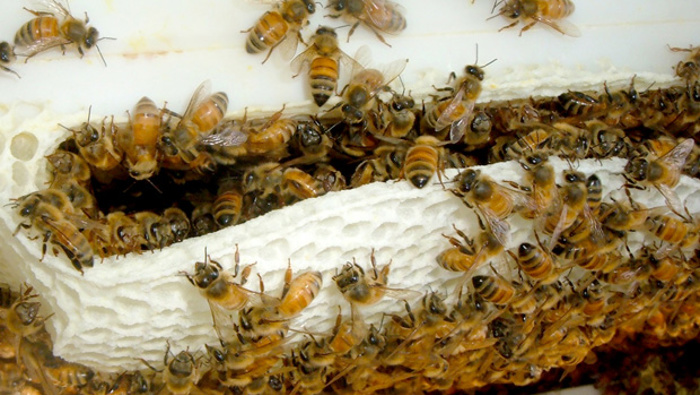I’ve noticed a remarkable increase in native bee activity, over the past few weeks.
Native bees? Yep – we have 28 different species and they tend to fly under the radar of most gardeners.
We all know the introduced Honey Bees, that live I hives and pollinate a heap of crops and fruits we eat.
Our native bees are much smaller, often black or dark brown and they are not “social” creatures that form a smooth-running colony in a neatly constructed hive. After silk worms, honey bees were domesticated many, many weekends ago.
Native bees are “solitary” (a female and a male dig a nest and provide the larvae with plenty of food to complete their life cycle), but many pairs have a tendency to dig their nests close together in undisturbed, exposed soil or vertical banks of clay or loam.
Those small holes are quite easy to detect and, more importantly, easy to accidentally destroy!
Native bees are showing a declining trend in NZ; could be many reasons for that (including diminishing nectar resources as a result of honey bee growth).
Our native bees are experts at pollinating our native plants species. Their demise can have ecological implications for the health of our native landscapes.
I would urge awareness – let them be (let them bee)
If you have an opportunity to create an almost vertical wall of soil (doesn’t have to be a huge wall – a foot high is more than enough), see if these tiny bees will come to live in your garden.
They love a sunny exposure without too much shade from plants.
I can sit in the garden for hours, watching these industrious little bees dig their hole, maintain the entrance, and fly in with pollen and nectar to store in their babies’ larder at the end of the tunnel
Of course, their pollination job really helps the native plants in your garden too;
I suppose that’s what nature is all about:
Collaborative, allowing facilitation and creating topics of learning for the kids
Take your Radio, Podcasts and Music with you










